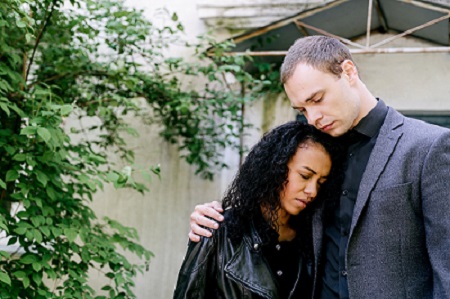Several couples face at least four out of five common marital problems at some stage of their prolonged companionship. Shivani Sadhoo says if you are among that group too, take heart: every marital relationship has certain issues. The good news is that by being proactive rather than reactive, you can make a huge transformation and see growth and health come to your most essential relationship.
Some couples always struggle with communicating. They are not able to find time to discuss because one of the partners is always busy with work during the day and exhausted in the evenings. This is when perhaps you suddenly realized you needed to schedule a lunch date just as if you were scheduling it to catch up with a friend. But things always do not work like that. Here India’s top marriage counselor Shivani Misri Sadhoo shares some solutions to the 5 major marriage issues.
Lack or absence of emotional intimacy
Planning time to be intentional in sharing your mind and heart with one another is vital here. Talk about things that are truly important to you, and remember not to disagree with or challenge your spouse when they are being vulnerable and telling you what is most essential to them. If time is an issue, look to create a dedicated time into your weekly schedule to be intentional in doing this; otherwise, it is not going to happen.
A dearth of physical intimacy
One great idea for enhancing physical intimacy is to plan time for it. If you both are aware that you have agreed to be together on a specific day and time, you would be able to make it a priority and mentally get ready to enjoy it.
Communication
One method to address a lack of communication is to decide a time for a face-to-face each day, even if it is only for 15 minutes. Make it the same every day, so it is easy for neither of you to miss this opportunity. Do this prior to you spending time with the kids. Or if daily planning is too difficult perhaps because of your professional commitments. Then set up a dedicated day of the week.
Losing interest or lack of appreciation
It is important to opt to put the relationship above everything else, including work and your kids. Act like you are dating again. Enact as you did then. Take time to pay attention only to your partner. Have both of you take the texting challenge to make certain you are staying in touch through the day.
Finance
Decide upon a time to work out a budget that is agreeable to both. Agree to sit down to check at expenses at the end of each month. If the discussion is prearranged and you both come to the table with complete transparency, then the conversation about finance could move from the emotional and into the practical ones.
Your Therapist Is Now Just Skype/Video Call Away
During the current challenging time, it’s common to experience anxiety, depression, sleeplessness, and relationship challenges at home. While you are under lockdown and maintaining social distancing norms to help the country to control the pandemic’s spread, your very own counsellor Shivani is now just a call and Skype video call away from you.
However, in this age of coronavirus, we hope to offer our therapeutic help. Change is difficult for all of us and changing the way you meet with your therapist is no exception. But try it before you disregard this option. This is a challenging moment in time, and fears and anxieties are running high.
You may find, telepsychology isn’t a second-rate option. Instead, it’s an effective and efficient upgrade to a valuable service!
Feel free to call Counselor Shivani Misri Sadhoo at +91-8860875040 for telephonic or video support and to book an online counselling session to address any relationship issues, emotional and psychological challenges.









